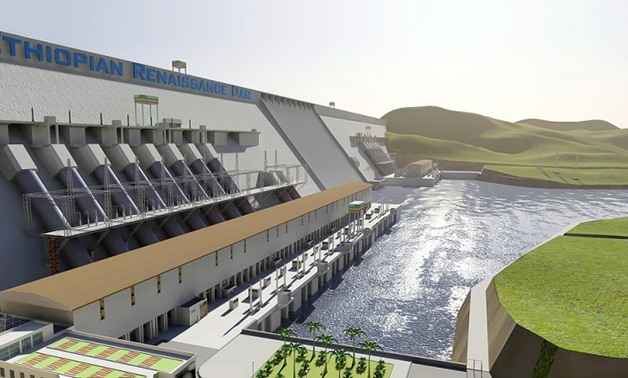
Grand Ethiopian Renaissance Dam Project – Courtesy of UKRHYDROPROJECT PRJSC official website
CAIRO – 6 April 2018: A round of discussions over the controversial Grand Ethiopian Renaissance Dam (GERD) between Egypt, Ethiopia, and Sudan in Khartoum has failed, Egypt’s Foreign Minister Sameh Shoukry told the press on Friday.
Shoukry headed a delegation to Khartoum on Wednesday to attend the ninth meeting to continue talks to ease Egypt’s concerns over the controversial dam.
The Egyptian Foreign Minister said no agreement was reached after 18 hours of talks; he added that officials touched on all the outstanding issues that led to such controversy.
The meetings were resumed after a four-month hiatus due to a disagreement over technical issues related to the dam’s impact on the downstream countries of Egypt and Sudan.
Shoukry also described the talks as “transparent, but did not lead to actual results.” However, he added that the government will seek to resolve this issue within 30 days.
Foreign and water ministers and intelligence chiefs from the three countries attended the meeting, which follows a tripartite summit that was held in January between Egypt’s President Abdel Fatah al-Sisi, his Sudanese counterpart Omar al-Bashir, and Ethiopian Prime Minister Abiy Ahmed Ali on the sidelines of the African Union Summit.
During the January summit, the three leaders agreed to continue the talks to reach a settlement in accordance with the outcomes of the 2015 agreement on the dam, which led to the Declaration of the Renaissance Dam Principles Charter. The Declaration tackles the management of the dam with written guarantees, and states that the dam’s reservoir would not be filled without the approval of Egypt and Sudan.
Construction of the $4 billion dam started in April 2011, triggering tension with Egypt, which has voiced concerns over the dam negatively affecting its water share of the Nile river, a sacred symbol of the Egyptian civilization.
It was expected to be inaugurated in 2017, however, only 60 percent of the dam has been built so far according to Ethiopian press reports.
The dam is believed to affect Egypt’s agriculture, and will contradict its 87 percent of the Nile’s flow, according to treaties that date back to 1929.
Comments
Leave a Comment